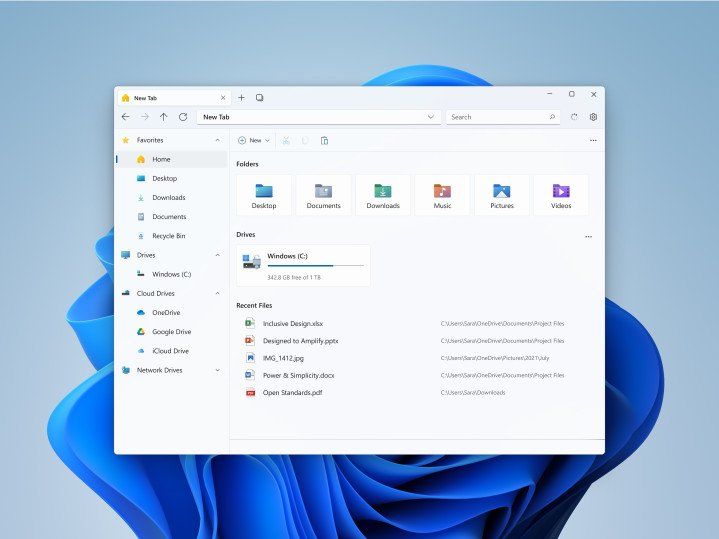You can now use this gorgeous file explorer on Windows on ARM devices
An attractive third-party file explorer now supports the Surface Pro X and other ARM devices natively.

What you need to know
- A third-party file explorer named Files recently received an update to version 2.1.
- The update adds native support for ARM64 devices and includes several other improvements and changes.
- Files features a tabbed interface and is designed to look native on Windows 11.
Files, a third-party file explorer for Windows 11 and Windows 10, recently received an update to version 2.1. The update to version 2.1 isn't quite as large as the jump to version 2.0 that launched alongside Windows 11, but it does include some significant changes and improvements. The app has a redesigned settings dialog and properties window that better align with Microsoft's latest OS. Files also now natively supports ARM64 devices, such as the Surface Pro X.
Here's everything that's new with Files in version 2.1:
- Redesigned the settings dialog
- Redesigned the properties window
- Added a hotkey for playing audio and video in the preview pane
- Added a toolbar button to empty recycle bin
- Set window title to be the same as the selected tab name
- Added compatibility options to the properties dialog
- Added Native ARM64 Support
- Improved keyboard navigation in the column layout
- Improved keyboard navigation in the details layout
- Added support for symbolic file links
- Added keyboard shortcut (Ctrl+H) to show/hide hidden files
- Removed delay when loading sidebar items and other services on startup
- Show network shortcuts on the sidebar
- Added clear all button to ongoing tasks flyout
- Mousewheel click opens a new tab at selected path
- Added experimental option to show folder sizes
- Added support for collapsing widgets on the homepage
- Added subtle listview animation
- Added option to open Files on Windows Startup
- Added support for Next Cloud
- Added support for Yandex.Disk
- Open recycle bin & this pc shortcuts in Files when it's set as the default file manager
An experimental feature in Files allows you to set the app as your default file manager. The option is still being worked on but is "stable enough for regular use" according to the app's developer. If you're already using Files as your default file manager, you should switch the option off and then back on to improve the feature's stability.
This weekend I helped port over the incredible @FilesForWindows app to ARM64 without any x86/x64 component left! App runs so much faster. Pull request is done and is waiting for merge. Also got a nice .NET 6 upgrade for the broker. All tested on a 950 XL pic.twitter.com/xEO7xPMAcKThis weekend I helped port over the incredible @FilesForWindows app to ARM64 without any x86/x64 component left! App runs so much faster. Pull request is done and is waiting for merge. Also got a nice .NET 6 upgrade for the broker. All tested on a 950 XL pic.twitter.com/xEO7xPMAcK— Gustave Monce (@gus33000) November 14, 2021November 14, 2021
While Files is built for Windows PCs, developer Gustave Monce managed to get it to run on a Lumia 950.
The update is already live in the Microsoft Store. You can also download files through GitHub.

Modern file explorer
Files is a third-party file explorer that's built to work with touch or a mouse and keyboard. Its recent update adds native support for ARM64 devices and redesigns several of its elements.
Get the Windows Central Newsletter
All the latest news, reviews, and guides for Windows and Xbox diehards.

Sean Endicott is a tech journalist at Windows Central, specializing in Windows, Microsoft software, AI, and PCs. He's covered major launches, from Windows 10 and 11 to the rise of AI tools like ChatGPT. Sean's journey began with the Lumia 740, leading to strong ties with app developers. Outside writing, he coaches American football, utilizing Microsoft services to manage his team. He studied broadcast journalism at Nottingham Trent University and is active on X @SeanEndicott_ and Threads @sean_endicott_.